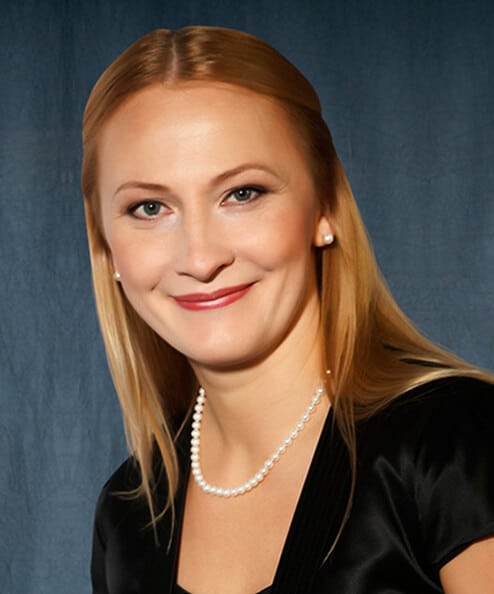When is the change coming? “Communications Middle East & Africa”
Dubai, United Arab Emirates – Women in telecoms are witnessing a positive change in terms of gender inclusion in the sector but they highlight that there is still a long way to find balance in the sector.

The debate about women empowerment in the telecommunications sector is gaining relevance and, little by little, female workers are seen in top positions in the Middle East and Africa region. ICT and telecommunications sectors are still characterised by a lower representation of women worldwide and by a steep waterfall of women at senior and executive levels. Although attempts have been made for decades by top industry names, the situation does not look exceedingly promising.
According to a World Bank report, Gulf female participation in the workforce is 11% higher than the Middle East average, mainly due to the number of female expat workers, especially in UAE and Qatar. However, the Gulf still lags behind more developed and mature markets (32% vs 51% in the EU) despite on-going efforts by GCC officials and governments to support female participation in the workforce. Saudi Arabia has the lowest female workforce participation among the Gulf countries, mainly due to the fact that mixed-gender work environments are not permitted there. This adds a cost barrier to employing women, as companies need to invest in double facilities, states a Pedersen & Partners research.
 Daiga Trumpe, Client Partner and Head of Technology Practice Group MEA at Pedersen & Partners, believes that there is overall a positive tendency to bring more gender diversity in the board. "Companies are seriously working on corporate programs attracting and enabling more female talents in telecom industry, on both sides – operators and suppliers. Not dramatic increase is expected though due to region profile traditionally not fostering female participation in businesses but rather slow and persistent 'baby steps' moving forward."
Daiga Trumpe, Client Partner and Head of Technology Practice Group MEA at Pedersen & Partners, believes that there is overall a positive tendency to bring more gender diversity in the board. "Companies are seriously working on corporate programs attracting and enabling more female talents in telecom industry, on both sides – operators and suppliers. Not dramatic increase is expected though due to region profile traditionally not fostering female participation in businesses but rather slow and persistent 'baby steps' moving forward."
Shireen Santosham, senior programme manager (Global) at GSMA Connected Women, said that companies need to take a holistic approach to attracting and retaining female talent. "For entry level positions, the focus should be on attracting and recruiting larger numbers of qualified women. As these women begin to advance, engaging and retaining women becomes more important as well as focusing on talent management and promotion of women who exhibit high potential," she explains to CommsMEA.
Belinda O'Neil, executive for MTN's African Shared Services Hub, goes beyond and believes that encouraging females in these areas needs to start at school and be reinforced at the level of university. "Business leaders need to create awareness and opportunities in the industry. It is also important to develop and enable the work environment to cater for females, particularly in areas like engineering, and when it comes to balancing family needs, flexible working conditions are essential," she added.
"Companies and regulators are creating opportunities by establishing policies around female representation. This needs to continue. At the same time I firmly believe skill shouldn't be compromised for gender. Creating development opportunities is what is essential," O'Neil highlights.
Experts believe that female role models encourage young women to strive for their goals. "This region, and the UAE in particular, needs more people to step up who are willing to be mentors to the younger generations. Young women are ambitions and tend to aim high; however, they need a guiding hand to steer them in the right direction. Several organisations have realised this and are committed to creating opportunities for women," adds Badri.
Trumpe agrees and says: "I strongly believe that in man-dominating industries it is critically important to have female as role models encouraging young girls to consider tech sectors as an outstanding and life-time opportunity to fulfil their professional goals and develop self-confidence. Females role models can share female orientated insights and experiences from own journey which is helping young female graduates to connect the dots and learn best practices or new approaches how to build successful career."
"Role models are very important to encourage girls to enter this sector. Gender biases start early and programs to encourage women to get interested in STEM like GSMA's Girls in ICT Day can help girls understand the value and gain more confidence around these fields. Senior women in the technology field can be valuable role models, but so can male executives if they broaden their mind-set to actively focus on mentoring young women to enter these fields," explains Santosham.
Pedersen & Partners is a leading international Executive Search firm. We operate 56 wholly owned offices in 52 countries across Europe, the Middle East, Africa, Asia & the Americas. Our values Trust, Relationship and Professionalism apply to our interaction with clients as well as executives. More information about Pedersen & Partners is available at www.pedersenandpartners.com
If you would like to conduct an interview with a representative of Pedersen & Partners, or have other media-related requests, please contact: Diana Danu, Marketing and Communications Manager at: diana.danu@pedersenandpartners.com
